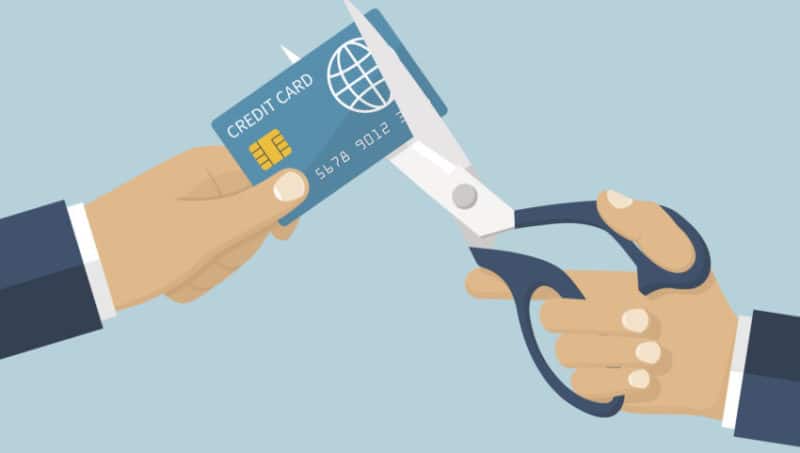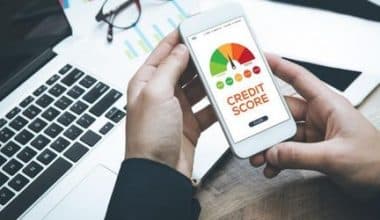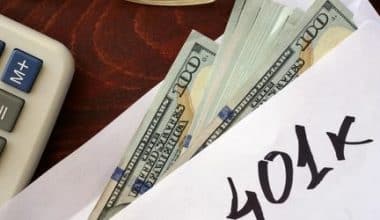If you’re struggling with credit card debt, you’re not alone. According to recent statistics, the average American carries a credit card balance of over $6,000. But there are steps you can take to pay off your debt and get your finances back on track. In this article, we’ll explore tips on how to pay off credit card debt with no money and a debt calculator.
Tips on How to Pay off Credit Card Debt
If you’re one of the many people who are struggling with credit card debt, it’s important to take action sooner rather than later. Credit card debt can quickly spiral out of control, resulting in high-interest rates, late fees, and damage to your credit score. Fortunately, there are steps you can take to pay off your credit card debt and regain control of your finances. These steps are the quickest way to become debt-free as quickly as possible. Below are some steps that you can take to accelerate the process:
#1. Create a budget
The first step to paying off credit card debt is to create a budget. A budget will help you understand your income, expenses, and how much money you can allocate to paying off your credit cards. Start by listing your monthly income and all your expenses, including credit card payments, rent, utilities, food, transportation, and entertainment. Subtract your expenses from your income to see how much money you have left over to put toward your credit card debt.
#2. Pay more than the minimum payment
Paying only the minimum payment each month will keep you in debt for a long time. Instead, try to pay as much as you can afford each month. Even a small increase in your payment can make a big difference in the long run.
#3. Use the debt avalanche or snowball method
There are two popular methods for paying off credit card debt: the debt avalanche and the debt snowball. With the debt avalanche method, you pay off your highest interest-rate debt first, while making minimum payments on your other debts. With the debt snowball method, you pay off your smallest debt first, while making minimum payments on your other debts. Whichever method you choose, make sure you stick with it.
#4. Consider a balance transfer
If you have high-interest credit card debt, a balance transfer can help you save money on interest charges. You can transfer your balance to a credit card with a lower interest rate, which will help you pay off your debt faster. Just make sure you read the fine print and understand any balance transfer fees or promotional periods.
#5. Cut back on expenses
Cutting back on unnecessary expenses can help you free up money to put towards paying off your credit card debt. Consider cutting back on dining out, entertainment, or other non-essential purchases. You can also look for ways to save money on your bills, such as switching to a cheaper phone plan or negotiating with your internet provider.
#6. Stop using credit cards
While you are trying to pay off credit card debt, it’s essential to stop using your credit cards. Using credit cards will only add to your debt and make it harder to pay off. Instead, focus on using cash or debit cards to make purchases.
#7. Focus on one credit card at a time
If you have multiple credit cards with balances, it’s easy to feel overwhelmed. Instead of trying to pay off all your credit cards at once, focus on one card at a time. Start by paying off the card with the highest interest rate first, while still making minimum payments on your other cards.
#8. Look for ways to increase your income
Increasing your income can help you pay off your credit card debt faster. Consider taking on a part-time job, selling items you no longer need, or freelancing. Use any extra income you earn to pay off your credit cards.
#9. Seek professional help
If you’re struggling to pay off your credit card debt, consider seeking professional help. A credit counseling agency can help you develop a debt management plan and negotiate with your creditors on your behalf.
How to pay off credit card debt calculator
If you’re looking to pay off your credit card debt, using a debt repayment calculator can be a helpful tool. Here are the steps to use a debt repayment calculator:
- Gather your credit card statements: Before using a debt repayment calculator, gather your credit card statements and make note of the balances, interest rates, and minimum payments.
- Choose a debt repayment calculator: There are many debt repayment calculators available online. Choose one that fits your needs and preferences.
- Input your credit card information: Enter your credit card balances, interest rates, and minimum payments into the calculator.
- Determine your monthly payment: Decide how much you can afford to pay each month towards your credit card debt. Enter this amount into the calculator.
- Calculate the debt repayment plan: The debt repayment calculator will provide you with a debt repayment plan. It will show you how long it will take to pay off your credit card debt and how much interest you will pay.
- Adjust your plan: If the debt repayment plan doesn’t fit your needs, adjust your monthly payment or the order in which you pay off your credit cards. The calculator will recalculate your plan accordingly.
- Stick to the plan: Once you have a debt repayment plan, it’s important to stick to it. Make your monthly payments on time and avoid using your credit cards until you have paid off your debt.
How to pay off credit card debt with no money
Paying off credit card debt with no money can be challenging, but there are a few strategies you can consider:
- Prioritize your debts: Make a list of all your debts, and prioritize them based on interest rates, with the highest interest rate debt at the top of the list. This way, you can focus on paying off the debt that is costing you the most in interest charges.
- Reduce your expenses: Review your budget and look for areas where you can cut back on expenses. Consider reducing your discretionary spending, such as eating out or buying clothes, and redirecting that money towards your debt payments.
- Negotiate with your creditors: Contact your credit card companies and explain your financial situation. You may be able to negotiate a lower interest rate or a payment plan that works better for your budget.
- Consider a balance transfer: Look for credit card companies that offer balance transfer promotions with a low or 0% interest rate. This can help you consolidate your debts and reduce the overall interest you pay, although be aware that there may be fees associated with balance transfers.
- Get a side hustle: Consider taking on a part-time job or freelance work to earn extra income to put towards your debt payments.
- Seek financial assistance: If you are struggling to make ends meet, look into financial assistance programs, such as government benefits or non-profit organizations that offer assistance with debt repayment.
How smart is it to pay off credit card debt?
Paying off credit card debt is generally a smart financial move. High-interest credit card debt can quickly accumulate and lead to long-term financial difficulties, so paying it off as soon as possible can help you avoid costly interest charges and improve your credit score.
By paying off credit card debt, you will also free up money that can be used to meet other financial goals, such as saving for retirement, building an emergency fund, or investing in assets that appreciate in value over time.
That being said, it is important to evaluate your financial situation and priorities before deciding how to allocate your funds. If you have other debts with higher interest rates, such as student loans or a mortgage, it may be more financially beneficial to focus on paying those off first. Additionally, it’s important to have a plan in place for how you will manage your credit card spending going forward to avoid falling back into debt.
Is there a way to forgive credit card debt?
There are a few ways to potentially forgive credit card debt, but they can be difficult to achieve and may have negative consequences. Below are some of the ways we know credit card debts can be forgiving.
- Negotiate with the credit card company: You can try negotiating with your credit card company to settle your debt for less than what you owe. This can be done by contacting the company and explaining your situation, and then proposing a lump sum payment or a payment plan that you can afford. However, the credit card company may not agree to your proposal or may require a significant amount of money upfront.
- File for bankruptcy: Filing for bankruptcy can potentially discharge your credit card debt, but it can also have long-lasting negative effects on your credit score and financial future. Additionally, not all types of bankruptcy allow for the discharge of credit card debt.
- Apply for debt forgiveness programs: There are some debt forgiveness programs available for certain types of debt, such as student loans or medical bills, but credit card debt is generally not eligible for these programs. Overall, it can be challenging to forgive credit card debt, and it’s important to carefully consider the potential consequences before taking any action.
Can banks write off credit card debt?
Yes, banks can write off credit card debt, but this is usually a last resort option for them. Writing off credit card debt means that the bank considers the debt as uncollectible and removes it from its financial records, essentially forgiving the debt. Banks may do this when they determine that it’s not financially feasible to continue trying to collect the debt.
However, writing off credit card debt has negative consequences for both the bank and the individual with the debt. For the bank, it means a loss of revenue and a negative impact on their financial statements. For the individual, it may negatively impact their credit score and may result in the bank or a debt collector pursuing legal action to collect the debt.
It’s important to note that banks usually do not write off credit card debt without significant effort to collect it first. They may try to work with the individual to come up with a payment plan or offer a settlement amount before considering writing off the debt. It’s also important for individuals to take responsibility for their debts and work with their bank to find a solution rather than assuming the debt will be written off.
What options do I have if I can’t pay my debts?
If you can’t pay your debts, there are several options you can consider, including:
#1. Debt consolidation:
If you have multiple debts, you can consider consolidating them into a single loan with a lower interest rate. This can make your payments more manageable and reduce the overall amount of interest you pay.
#2. Credit counseling:
Credit counseling agencies can help you create a budget, negotiate with creditors and develop a plan to pay off your debts. They can also provide you with financial education and resources to help you manage your money better.
#3. Debt settlement:
Debt settlement involves negotiating with your creditors to settle your debts for less than what you owe. This can be a risky option and may have a negative impact on your credit score, but it can provide you with some relief from your debts.
#4. Bankruptcy:
Bankruptcy is a legal process that can help you eliminate or restructure your debts. It should only be considered as a last resort, as it can have a significant impact on your credit score and financial future.
What happens if you are in debt and don’t pay?
If you are in debt and do not pay, there can be several consequences depending on the type of debt and the creditor. Here are some potential outcomes:
- Late fees and interest charges: You may incur late fees and interest charges for every month that you miss a payment, which can increase the amount you owe.
- Credit score damage: Your credit score may be negatively impacted if you miss payments on a loan or credit card. This can make it more difficult to obtain credit in the future.
- Collection calls and letters: If you do not pay your debt, you may receive collection calls and letters from the creditor or a collection agency.
- Legal action: The creditor may take legal action against you, such as filing a lawsuit or obtaining a judgment against you, which could result in wage garnishment or seizure of assets.
- Debt collection agency involvement: The creditor may sell your debt to a collection agency, which will then try to collect the debt from you.
- Default: If you continue to not pay your debt, you may go into default, which could result in the repossession of assets or foreclosure on a mortgage.
It’s important to note that ignoring your debt will not make it go away. If you are struggling to make payments, it’s important to communicate with your creditor and try to work out a payment plan or other solution.
In Conclusion
Remember that paying off credit card debt requires discipline, persistence, and a solid plan. Even if you can only make small payments at first, every little bit helps. By creating a budget, paying more than the minimum payment, and focusing on one card at a time, you can take control of your debt and improve your financial future. Stay committed to your debt repayment plan and keep working towards becoming debt-free.
- What Is A Good Interest Rate On A Credit Card? (Updated)
- BEST NO ANNUAL FEE CREDIT CARDS IN 2023.
- Important Things to Know before Refinancing Credit Card Debts (Refinansiering Av Kredittkort)
- FINANCIAL GROWTH: How Does Investing Promote It
- BEST CREDIT CARD COMPANIES IN USA: Top 10 Issuers






